News & Media
A university rooted in Africanness: Africa Day 2020
 Africa Day is intended to celebrate and acknowledge the successes of the African Union from its creation on 25 May 1963, in the fight against colonialism and apartheid, as well as the progress that Africa has made while reflecting upon the common challenges that the continent faces in a global environment. In the spirit of this celebration, Unisa prides itself on being a leading institution in the academe and curriculum transformation agenda in the country. This is one of its various efforts seeking to overcome challenges that confront society. Whereas the debates about curriculum transformation and the need to change the culture within universities can be traced back to the mid-1980s when student and staff organisations began to agitate for radical changes. It was not until 2015 that those calls found such radical expression when the #FeesMustFall movement emerged.
Africa Day is intended to celebrate and acknowledge the successes of the African Union from its creation on 25 May 1963, in the fight against colonialism and apartheid, as well as the progress that Africa has made while reflecting upon the common challenges that the continent faces in a global environment. In the spirit of this celebration, Unisa prides itself on being a leading institution in the academe and curriculum transformation agenda in the country. This is one of its various efforts seeking to overcome challenges that confront society. Whereas the debates about curriculum transformation and the need to change the culture within universities can be traced back to the mid-1980s when student and staff organisations began to agitate for radical changes. It was not until 2015 that those calls found such radical expression when the #FeesMustFall movement emerged.
A few years after those calls, Unisa has done a great deal to address that radical intellectual discourse around the need to decolonise academia and the curriculum. Unisa is a university fully engaged with and rooted in its mission to be responsive to the challenges faced by its communities. It identifies and empathises with the struggles faced by its communities and formulates programmes that help uplift them.
At Unisa, the transformation agenda is fundamental and purposeful advancement towards specified goals: individual, collective, cultural, and institutional, aimed at high performance, effectiveness and excellence. This entails improvement and continuous renewal guided by justice and ethical action. The university is committed to construct, together with its stakeholders, a DNA characterised by openness, scholarly tradition, critical thinking, self-reflection and the values of African cultures such as inclusiveness and community.
As the African university shaping futures in the service of humanity, no other institution can compare with Unisa internationally or nationally in terms of the numbers of accredited graduates that the institution produces year after year. This is despite the challenges that the leadership continues to deal with in respect of service and systematic efficiencies and, more recently, socioeconomic and political upheavals.
Unisa’s vision presents to the world a university that has broadened its narrower national scope towards becoming a fully African institution that is committed to advancing its educational agenda and to making its voice heard in the global arena as a confident leader in distance education that is distinctly African, and not merely an imitation of business models which currently characterise global open, distance, and e-learning (ODeL).
Simply put, Unisa embraces the concept of shaping futures. Its goal is to ensure that it continues to serve as the guardian of its students, with the hope that its students will become the drivers of the economy, influencers of social consciousness and the greatest generators of ideas yet for a sustainable future of this continent. These efforts are also recognised on international platforms. Recently, the Principal and Vice-Chancellor of Unisa, Professor Mandla Makhanya, was one of only two Africans honoured with the prestigious Honorary Fellowship of the Commonwealth of Learning. The award acknowledges outstanding contributions by individuals from open distance education institutions in areas such as leadership and service, published works, courseware, lectures, presentations, mentorship that improves access to quality education, and promoting learning for sustainable development.
Its academic achievement highlights continue to prove the institution to be a global leader in distance education. Its projects that support the institution’s concerted Africanisation and decolonisation efforts also reflect its commitment to the transformation imperative. Unisa continues to derive inspiration from its communities in pursuit of its vision of becoming the African university shaping futures in the service of humanity.
*By Tshimangadzo Mphaphuli, Senior Journalist, Department of Institutional Advancement
Publish date: 2020-05-25 00:00:00.0

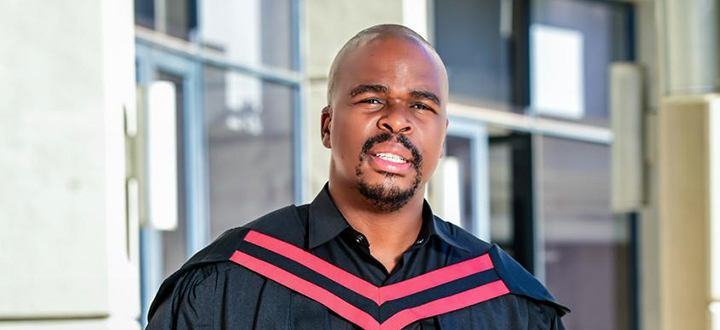 Education in pursuit of social justice
Education in pursuit of social justice
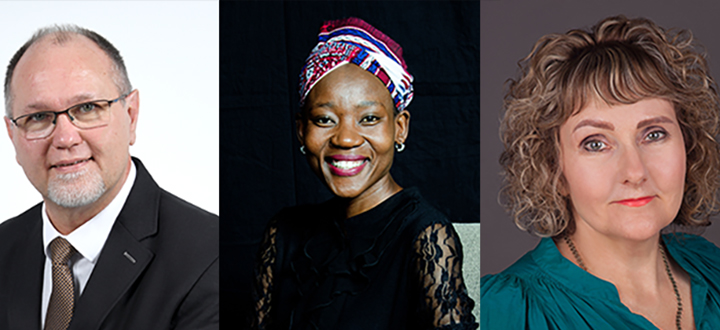 Unisa shows that developing countries are equal partners in research management and administration capacity development
Unisa shows that developing countries are equal partners in research management and administration capacity development
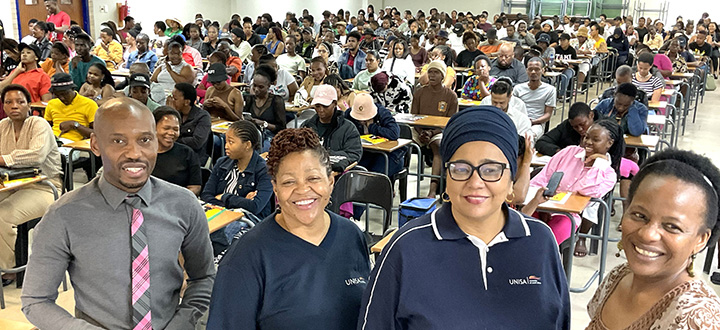 Unisa KZN Career Fair bridges the gap between students and employers
Unisa KZN Career Fair bridges the gap between students and employers
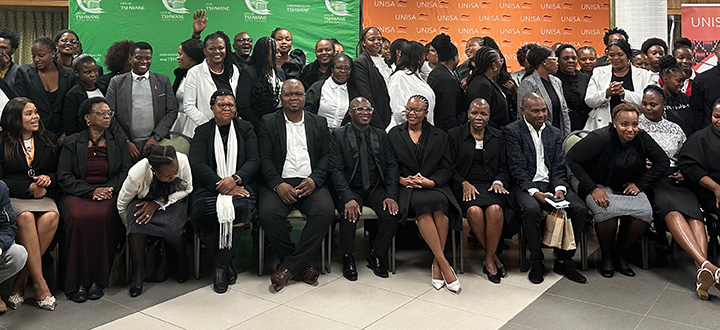 Unisa academics join hands to celebrate World Social Work Day
Unisa academics join hands to celebrate World Social Work Day
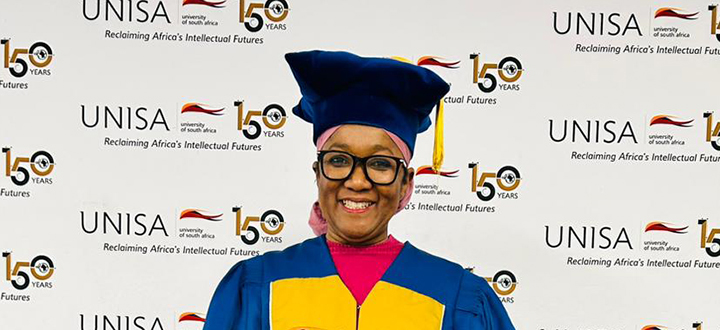 Unisa community engagement initiative targets school underperformance
Unisa community engagement initiative targets school underperformance